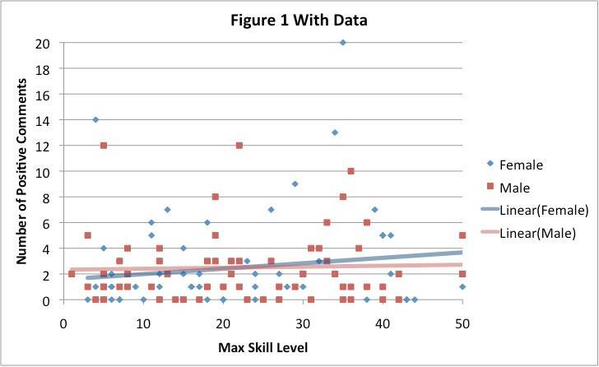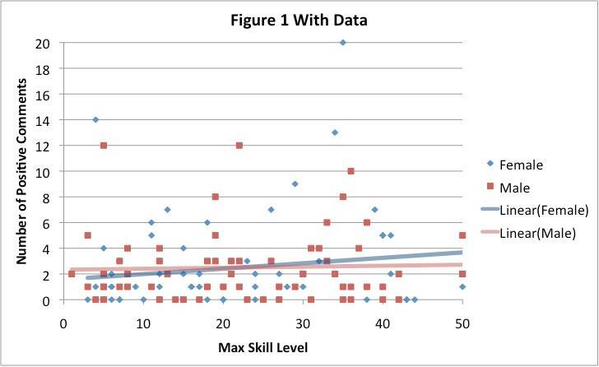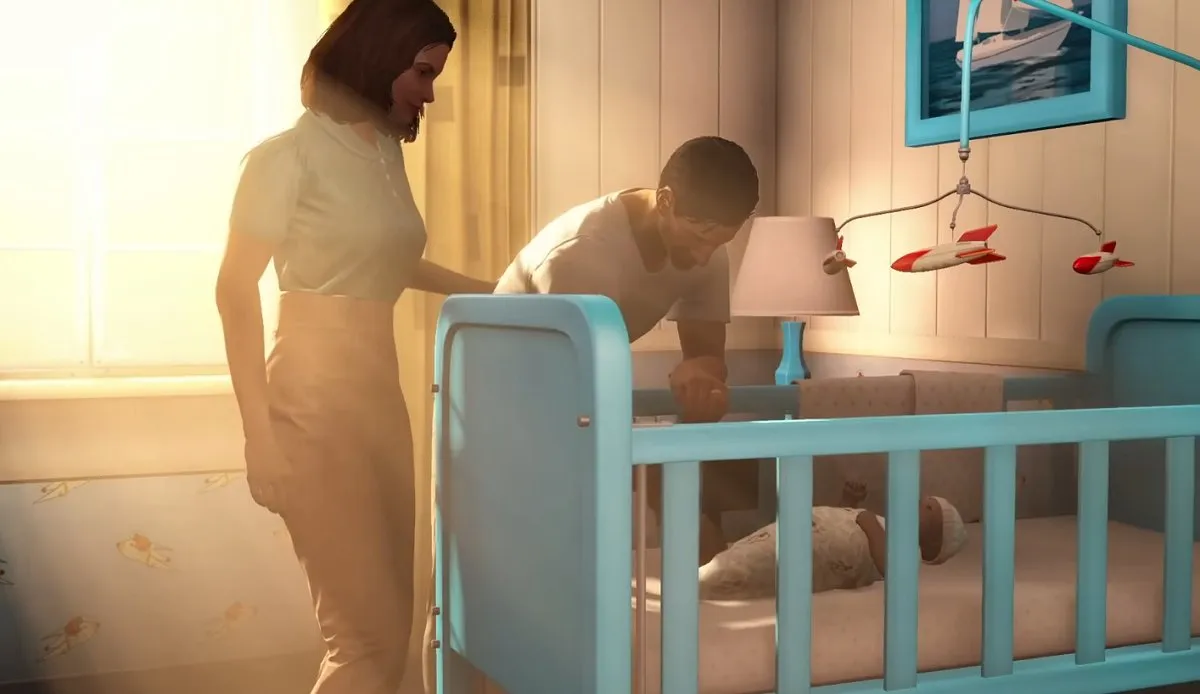Remember that study about how men who harass women in online games seem to get more vitriolic when said women have just kicked their virtual butts? Rebecca Watson, a.k.a. “Skepchick,” has done a deep dive on the data made available by that study’s researchers, and she believes their conclusions may over-state the case. In other words, the “sore loser” explanation isn’t the whole story when it comes to harassment in online games.
Astrophysicist Katie Mack aided with plotting the data, providing this graph for Watson’s video:
In the video (and the accompanying transcript), Watson explains the graph above:
When you see all the data laid out, it becomes a lot less clear that lower level players were less complimentary … This chart shows that the more times a player died, the more they insulted both the male and female experimental player, with the female getting a bit more negativity at first but then the male getting much more at the far end of the “loser” spectrum.
One other issue with this study is that they didn’t get enough data to evaluate the use of sexualized insults. They found that 13% of players uttered hostile sexist statements, but that still wasn’t enough to show any significant correlations.
Watson concludes that the study could benefit from “more data” in order to draw a firmer conclusion.
The original study didn’t feel like the whole story to me, either; even before I saw Watson and Mack’s breakdown of the data, the original conclusions felt a bit too neat. In my own anecdotal experience with playing games online and in-person at tournaments, players who’ve made sexist comments towards me ran the gamut between talented winners and unskilled losers. The only thing these harassers have in common is sexist views towards women. Although a sexist guy might well hate losing to a girl, I’ve found that sexists are also happy to crow about a woman’s inferiority upon beating her in a match. What’s more, sometimes gamer guys take to objectifying and fetishizing women who are good at games, which is a form of “benevolent sexism” that can have insidious effects. It’s difficult to measure situations like those I’ve just described in a quantitative research environment, however.
I definitely agree that researchers who study harassment in gaming spaces need to introduce more variables into their studies, such as the “sexualized insults” component that Watson mentions in her own recommendations. I also believe that understanding the roots of sexism in these communities will require more qualitative research as well, as opposed to studies that document what we already know … which is that harassment is definitely happening in games, in spades.
(via Rebecca Watson, image via Katie Mack)
—Please make note of The Mary Sue’s general comment policy.—
Do you follow The Mary Sue on Twitter, Facebook, Tumblr, Pinterest, & Google +?










Published: Jul 27, 2015 01:14 pm